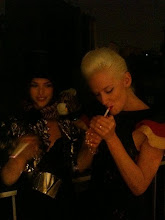Oct. 20.—A CLEAR, crispy day—dry and breezy air, full of oxygen. Out of the sane, silent, beauteous miracles that envelope and fuse me—trees, water, grass, sunlight, and early frost—the one I am looking at most to-day is the sky. It has that delicate, transparent blue, peculiar to autumn, and the only clouds are little or larger white ones, giving their still and spiritual motion to the great concave. All through the earlier day (say from 7 to 11) it keeps a pure, yet vivid blue. But as noon approaches the color gets lighter, quite gray for two or three hours—then still paler for a spell, till sun-down—which last I watch dazzling through the interstices of a knoll of big trees—darts of fire and a gorgeous show of light-yellow, liver-color and red, with a vast silver glaze askant on the water—the transparent shadows, shafts, sparkle, and vivid colors beyond all the paintings ever made.
| 1 |
I don’t know what or how, but it seems to me mostly owing to these skies, (every now and then I think, while I have of course seen them every day of my life, I never really saw the skies before,) I have had this autumn some wondrously contented hours—may I not say perfectly happy ones? As I’ve read, Byron just before his death told a friend that he had known but three happy hours during his whole existence. Then there is the old German legend of the king’s bell, to the same point. While I was out there by the wood, that beautiful sunset through the trees, I thought of Byron’s and the bell story, and the notion started in me that I was having a happy hour. (Though perhaps my best moments I never jot down; when they come I cannot afford to break the charm by inditing memoranda. I just abandon myself to the mood, and let it float on, carrying me in its placid extasy.)
| 2 |
| What is happiness, anyhow? Is this one of its hours, or the like of it?—so impalpable—a mere breath, an evanescent tinge? I am not sure—so let me give myself the benefit of the doubt. | 3 |
| Hast Thou, pellucid, in Thy azure depths, medicine for case like mine? (Ah, the physical shatter and troubled spirit of me the last three years.) And dost Thou subtly mystically now drip it through the air invisibly upon me? |


0 comments:
Post a Comment